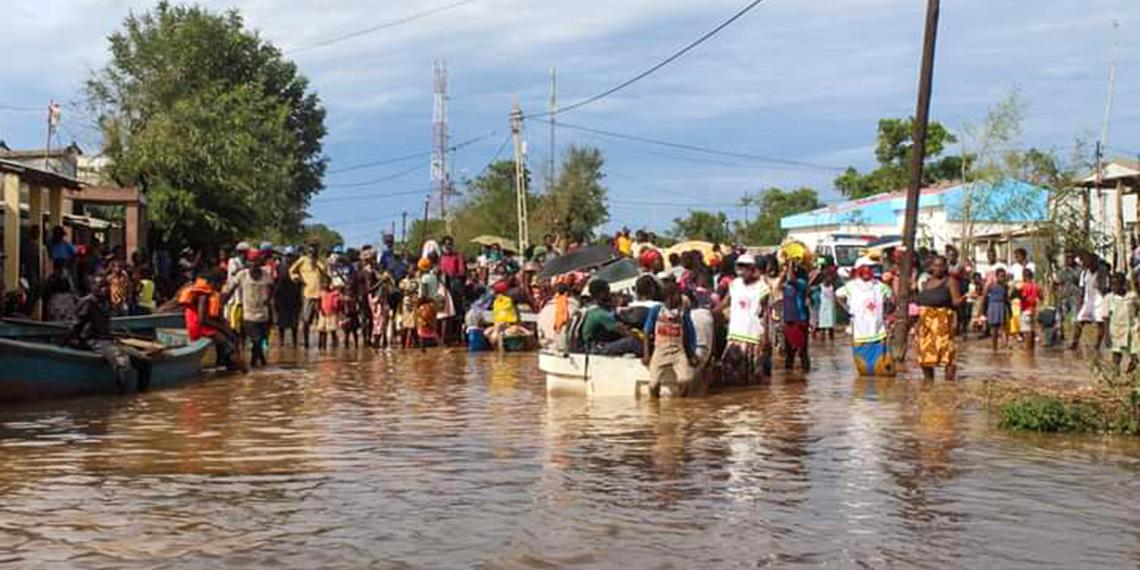You are here
Salvation Army Undertakes Emergency Food Distributions as Cyclone Eloise Hits Mozambique

Cyclone Eloise made landfall in the central Mozambique province of Sofala, in the early hours of Saturday morning, 23 January 2021. Bringing 100 mile-per-hour (165 kmh) winds, heavy rains and damaging flooding, the storm displaced thousands of people from their homes. The Salvation Army is working with other agencies to ensure a robust supply of emergency food to up to 1,500 individuals.
The first quarter of the year is typically the period when Mozambicans find it hardest to reliably find food, with United Nations World Food Programme figures suggesting that around three million people were facing high levels of food insecurity even before Cyclone Eloise struck. With crops inundated by the storm, this situation is likely to be exacerbated.
Lieutenant Delfina António Zualo, The Salvation Army’s Assistant Project Officer in Mozambique, writes from Maputo: ‘The situation is hard. Eight people died [in the storm] and many lost their houses. Roads are destroyed and access is blocked. I am especially concerned about children, elderly people and vulnerable individuals in the community who were already struggling with the effects of COVID-19 while also recovering from Cyclone Chalane in December.’
With a needs assessment identifying people waist-deep in floodwater among those in particular need of help, plans have been developed to distribute bulk quantities of rice, beans and cooking oil to around 300 families (1,500 individuals), sufficient to ensure a month’s supply of basic nutrition.
On a national level, Lieutenant Zualo explains that The Salvation Army has been coordinating with government and non-governmental agencies in order to ensure that relief supplies reach those most in need and to ensure nobody is missed. Much of the collaborative response is being channelled through 21 temporary camps which have been set up to accommodate many who have been displaced.
‘Right now,’ she says, ‘I am preparing the beneficiary distribution list as well as the training of the volunteers before the distribution. We also need to make sure that everyone is aware of the risks of COVID-19 and mitigate the potential for infection as far as possible.’
In view of the importance of disease prevention controls, aid recipients will also receive five bars of soap to help ensure personal hygiene.
IHQ Communications
International Headquarters